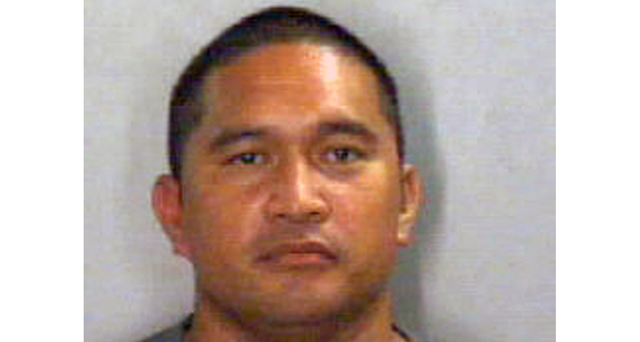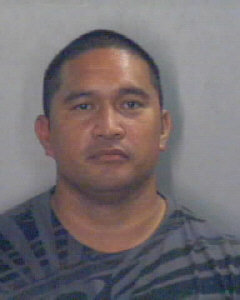After using a stun gun and beating a Kona man while he lay incapacitated on the ground, Hawaii County police delayed seeking medical attention for the 39-year-old resulting in his death, a lawsuit filed on behalf of Randall Hatori by his brother claims.
After using a stun gun and beating a Kona man while he lay incapacitated on the ground, Hawaii County police delayed seeking medical attention for the 39-year-old resulting in his death, a lawsuit filed on behalf of Randall Hatori by his brother claims.
However, Hatori’s death was the “direct result of his own actions,” said Laureen Martin, the county’s Office of Corporation Counsel’s Section Chief for the Litigation.
In defending the county, Martin also shared some previously unreleased information about the incident, including that Hatori reportedly attacked an officer, punching him in the head while he was down on the ground.
“It is unfortunate that Randall Hatori died. However, his death was the result of his own actions,” Martin said in an emailed statement. “Mr. Hatori knew there was a warrant for his arrest and decided to flee. When an officer chased him, he decided to attack the officer.
“Even after the officer was down on the ground, Mr. Hatori continued to attack the officer by punching the officer in the head. Mr. Hatori died from a heart attack caused by the use of methamphetamines and an enlarged heart.”
The lawsuit, filed Tuesday — nearly two years to the day of the fatal incident — seeks unspecified general, special and punitive damages from Hawaii County and not-yet identified defendants/officers in an amount to be shown at trial for the Feb. 4, 2014, death of the Kailua-Kona resident.
The 13-count suit claims wrongful death, assault and battery, false imprisonment, negligence and gross negligence, negligent training, and that the defendants violated his constitutional rights under the Fourth, Fifth and 14th Amendments, among other allegations. The civil proceeding demanding jury trial was filed by Honolulu attorney Richard D. Gronna on behalf of Hatori’s brother, Clarence Hatori, in U.S. District Court. A hearing is slated for April 4 before Judge Barry M. Kurren.
Gronna, reached Thursday afternoon, said the family did not want to be interviewed. He declined further comment on the filing.
Hawaii Police Department Chief Harry Kubujiri’s secretary said the department had not yet been served and could not comment on any pending litigation. Kubujiri was reportedly off-island on Thursday.
Randall Hatori, a landscaper, was a passenger in a vehicle driven by Ernest Ricky Alvares that stopped near the intersection of Queen Kaahumanu Highway and Palani Road about 12:30 a.m. Hatori and Alvares were both known to police, but there was no warrant for Hatori’s arrest or reason to detain him, according to the suit.
Police, in a press release issued the same day of the incident, said he was wanted for assault and violating temporary restraining orders.
When officers confronted the two, a physical altercation followed as police tried to forcefully remove Hatori from the vehicle, according to the lawsuit.
While trying to detain Hatori, he broke free and fled, crossing Palani Road and into a parking lot of the Tesoro gas station near the entrance of the Kona Coast Shopping Center. The officers pursued Hatori and one officer, who was not identified in the suit, deployed his Taser striking Hatori “multiple times in the torso, arms, and legs, knocking him to the ground and incapacitating him,” according to the lawsuit.
While incapacitated, the suit alleges, multiple other officers, one of whom was female, began beating Hatori with their hands, feet and police equipment, “although he presented no threat or harm to them.”
It further alleges the officers applied their full body weight using their knees onto Hatori’s back and another officer arrived at the scene, got out of his vehicle and repeatedly kicked Hatori while he lie face-down on the asphalt parking lot.
At some point, the lawsuit states, the officers stepped away and while he still lay motionless on the ground he was placed in handcuffs and left there for “an extended period of time.”


